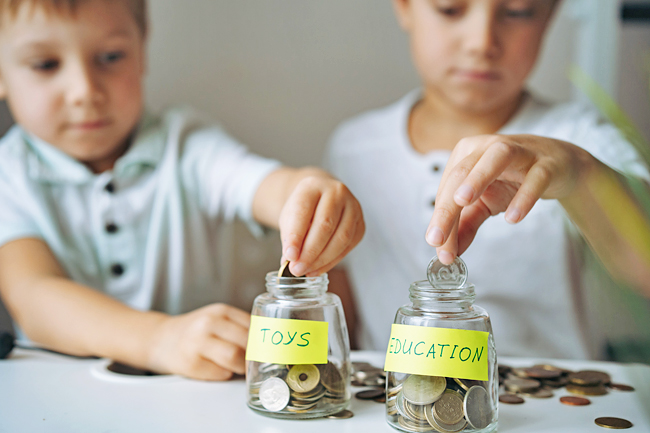Standard Chartered Bank
It is a new year and for many, it may mean getting the children on track and back into the study mode for the new school year.
As a parent, one of your main priorities is to see that your child receives good education at school and achieves good grades in tests and exams. The dream is that your child will continue onto university and earn a degree that will make all the difference in your child’s future later in life.
Education in the academic sense is extremely important. Education on life skills to complement the academic side is equally important to your child’s development but these tend to take a backseat every once in a while.
TEACH YOUR KIDS THE IMPORTANCE OF MONEY
One of the life skills that may or may not be taught at school is personal finances and indeed this life skill is very important to every individual whether they are students, working adults, parents or even retirees. It is important for us to teach children how to save and manage money from a young age so that good financial habits start from an early stage.

As a parent, facilitate the education of the importance of money on a daily basis so that your children understand how important it is to save for their futures and be financially independent.
It is also important for you as a parent to exercise discipline so your children will learn by example and what better example to set than at home. Start small but practice regularly with everyday tips you can adopt at home with your children.
Give your child a coin box
The easiest thing you can do is to present your child with a coin box. These are readily available at most shops or you can even fashion one at home from jars or recycled tin cans. Teach your child to put away any spare coins received and make it a commitment that once the coin box is full, you will sit down with your child to count how well she or he has done in saving money. Remember that the money saved should be coming from valid sources and stealing is absolutely not acceptable. It can be spare change from their daily or weekly allowance if any or maybe a small reward from helping with a chore.
Open a kid’s account for them
It is never too early to start a bank account for your children. Bring your children to the bank every time their coin box is full and have them deposit their coins into the account.
Having a passbook is extra incentive for your child to see their money grow every time they make a deposit in addition to seeing interest being paid into their accounts. Praise your child on the progress they make and exercise discipline to not touch your children’s savings for any other use other than savings.
Save those ‘ang pows’ and monetary gifts
Your children will more likely than not receive many monetary gifts until they grow older, be it Chinese New Year ang pows, Hari Raya green packets or birthday gifts. Sit down with them at the end of the day to open their gifts and count how much they have received.
This is not to be done in a calculative way, but rather in a gracious way, teaching them at the same time not to look a gift horse in the mouth and that any form of gift is a wonderful gift.
Once counted, steer their decision towards saving all the money they have received. If they insist that they want to use the money for a particular reason, discuss this option with them. If it is a charitable request, then by all means, support it but within reason, citing that they should not give away all their money but a percentage of it. If it is to purchase a new item, discuss if it is a need or if they can actually perform a chore to earn the money for it instead and so forth.
Teach them basic banking
Aside from a simple savings account which they can learn to manage themselves, introduce them to slightly more complex banking products if the opportunity arises. If they have sufficient funds in their savings account, suggest to them that this money can earn more interest if it was moved into a fixed deposit instead. Explain to them how a fixed deposit works and have the bank help to explain to your child how it works in a simple, easy to understand way. Your child will eventually make this link when they learn more about economics or commerce in higher school levels.


